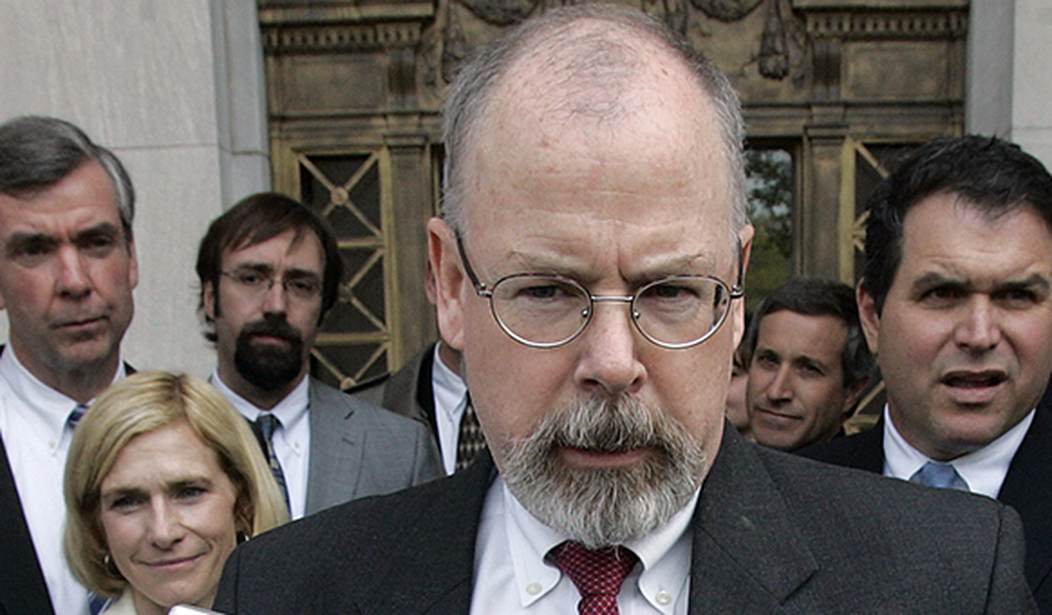Fun fact from today’s Wall Street Journal: John Durham has now spent more time as a special counsel than Robert Mueller. He’s only chalked up one conviction, a guilty plea from a Department of Justice lawyer that Inspector General Michael Horowitz had already exposed for falsifying evidence to a FISA court. Technically speaking, Durham’s budget may have expired, although the DoJ won’t comment on that for now.
So what’s the status on Durham’s investigation into malfeasance surrounding the investigation of the Russia-collusion hypothesis? It’s still unclear — as maybe it should be — but it doesn’t appear to be aiming high, the WSJ reports:
Prosecutors working for Mr. Durham have focused on people outside the FBI who provided information that helped to fuel the 2016 investigation, the people familiar with the matter said. Prosecutors are examining whether those who provided the information knew it was false at the time, and what the FBI subsequently did with it, some of the knowledgeable people said.
For example, some of these people said, Mr. Durham has asked questions about evidence related to allegations that a Trump Organization server was secretly communicating with Russian bank Alfa Bank. The FBI investigated those claims in 2016 and concluded by February 2017 there were no such links.
Prosecutors appear to be pursuing a theory that if people passed along information they knew to be false to the FBI directly, or if they passed it on to others who later shared it with the FBI, it could be considered lying to the federal government, the people said.
Going after tipsters? That’s certainly, um … exciting. It’s also likely to be a dry hole, one former federal prosecutor told the WSJ:
“The further you get from the direct statement to investigators, like a statement made to a third party, the harder it is to prove that the statement was made knowingly and intentionally in order to impede the investigation,” said Ari Redbord, a former federal prosecutor.
Wait a minute, readers may interject, what happened to going after the intelligence leaders for cooking the data? Good question … and here’s the answer:
Beyond the role of outside tipsters, Mr. Durham’s investigation examined how the FBI first came to open the investigation, as well as a separate 2017 U.S. intelligence report that concluded Moscow interfered in the presidential election in part to help then-candidate Trump.
Mr. Durham’s team isn’t expected to bring any criminal charges in connection with that intelligence assessment, some of the people said.
In other words, it’s beginning to look a lot like Fitzmas. And to that point, it’s beginning to look like most if not all special-counsel investigations — a big letdown and waste of time and money. If there wasn’t anything to prosecute, why do a two-year investigation of it? If all prosecutors can do now is try to track down tipsters, then there’s no need for a special prosecutor to run that operation, either.
Once again, we’re reminded that the special-counsel statute and concept are not just antithetical to accountability, but to common sense. That’s not necessarily a reflection on John Durham, who at least hasn’t brought a series of process-crime charges to browbeat potential material witnesses to salvage his investigation. It is, however, a reflection on the special-counsel concept and its almost-uninterrupted, decades-long track record of failures.







Join the conversation as a VIP Member